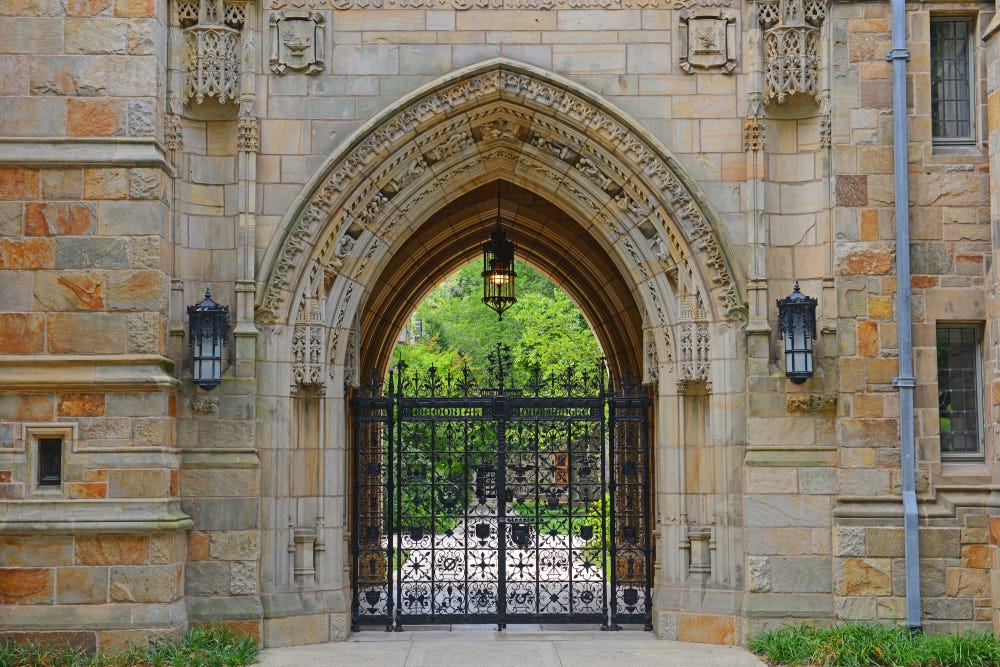E-Pluribus | April 27, 2023
Wait, states have constitutions?; illiberal elites; and a look at socialism through the eyes of the author of 1984 and Animal Farm.
A round-up of the latest and best writing and musings on the rise of illiberalism in the public discourse:
Anthony Sanders: Unenumerated Rights and Baby Ninth Amendments
In all the discussion of “constitutionality,” it’s easy to forget that our nation’s Constitution is not the only game in town. At Discourse Magazine, Anthony Sanders looks at the issue of “unenumerated rights” and how what he terms “baby ninth amendments” on the state level bolster the arguments for those rights.
The story of state constitution building is itself a kind of history of America. Every state adopted a constitution at least once, and many have done so several times. States learn from each other as they go. When it comes to a bill of rights, delegates to state constitutional conventions emulate the U.S. Constitution but also keep a close eye on what other states have been up to. Plus, convention delegates and drafters of constitutional amendments come up with their own innovations along the way.
Written constitutions—as a “higher law” superior to anything that a legislature might adopt—were an innovation themselves at the time of America’s founding. The first, New Hampshire’s of January 1776, was simply a brief sketch for how to hold the newly independent government together. Over time, though, individual states added a bill of rights (sometimes called a “declaration of rights”) and put it, along with the rest of the constitution, above the reach of normal legislative power.
[ . . . ]
These [state] constitutions also assume that people come together for mutual protection to form a government, and in so doing they have to relinquish some of their rights—but, unlike what Thomas Hobbes described in his “Leviathan,” not all of their rights. Some rights are “inalienable” and stay with individuals even after they form a social contract. That is, these rights are “retained by the people.”
[ . . . ]
[T]hese are not absolute rights that the government can never regulate. Baby Ninth Amendments say that enumerated rights cannot “deny or disparage” (or “impair,” in many versions) these unenumerated rights. In other words, both kinds of rights—enumerated and unenumerated—have to be treated with the same level of respect. The government may regulate freedom of speech or freedom of religion if the facts are right and the state’s interests weighty enough, but the courts will examine those restrictions closely, given the importance of the right at issue.
Read it all.
Samuel J. Abrams: Elite Schools are Leading the Illiberal Charge
Many national leaders over the years have come out of our prestigious and venerable institutions of higher education. Looking at some recent survey findings, however, Samuel Abrams at Minding the Campus finds some of these elite colleges and universities are leading potential future leaders in the wrong direction when it comes to classical liberalism.
As free speech and expression have come under assault on college and university campuses, a number of clear trends have emerged. One of the most powerful findings is that elite schools are typically less open to free speech. Further analysis reveals a troubling gender gap between male and female students: women are far more liberal and more likely to encourage silencing dissent compared to their male counterparts. This gender gap is more pronounced at elite schools—like Yale, Stanford, Oberlin, and Middlebury—which place their many graduates, who hold illiberal views about debate and discourse, into positions of power.
In 2022, the Foundation for Individual Rights and Expression (FIRE) released a survey based on the responses of over 45,000 currently enrolled students at over 200 colleges and universities. The data reveal a gender gap on a host of salient items relating to campus culture. The survey found that 41 percent of men identify as liberal, while nearly a third (31 percent) identify as moderate and 28 percent identify as conservative. Female students, on the other hand, look appreciably different, with 58 percent identifying as liberal, 27 percent as moderate, and only 15 percent as conservative. While not completely balanced, men appear to be more ideologically diverse and far less skewed than women.
The ideological gender gap becomes more pronounced at top-25 schools, as ranked by U.S. News & World Report. 55 percent of men identify as liberal, while a quarter (25 percent) and a fifth (20 percent) identify as moderate and conservative, respectively. Meanwhile, almost three-quarters (74 percent) of women state that they are liberal, only 18 percent identify as moderate, and a mere 8 percent identify as conservative.
Read the whole thing.
Michael C. Anderson: Orwell and Socialism
Author George Orwell’s depictions of the dangers of totalitarianism are classics and have elevated him to near prophet status to students of politics and government. At Quillette, Michael Anderson writes of Orwell’s evaluations and critiques of socialism in his day and how real world examples of how socialism was (and more often wasn’t) working for the good of the common man shaped his views.
To Orwell, the working man’s view of socialism was pure. He wanted better wages, a shorter work week, and freedom on the job. The passionate revolutionary socialist, on the other hand, sees himself in a battle against oppression. The working man’s view was more legitimate because he understood that socialism represented justice and fairness. He hoped for a world with the worse abuses removed but didn’t understand the price to be paid to reach that goal. You can’t pursue socialism to achieve one piece of what it offers, because the journey to that end requires an entire political system to be torn down.
Orwell thought about the motives of the theoretical book-trained socialist in order to understand his behavior. That person presented himself as motivated by love for the working class and belief in equality. Was this his true aim? It seemed hard to believe because he has never been part of the working class and is far removed from it. More likely, it was his sense of order that drove him. Working-class problems were messy and hard to clean up. Only a new political structure could fix that problem.
Perhaps this advocate didn’t really care about the working classes and had no desire to associate with them. Perhaps he considered himself part of a group of elites who would implement political reforms designed to control the lower class. He was not an emotionless theorist, however, because he also was a man who harbored a smoldering hatred of the capitalist oppressors that anticipated violence.
[ . . . ]
Ordinary people, who were attracted to socialism conceptually, could not picture themselves in association with these groups. They might embrace a revolution but would never support a dictatorship of the elites.
When confronted with resistance to his ideas, the ardent socialist sees opposing views as corrupt—they were expressions of skepticism about whether socialism could work or a fear of the revolutionary process. This view was too narrow—it leaves out valid reasons held by many people, including the value of spiritual and nationalistic ideas fundamental to human society. If these values were sacrificed, would the people regret what they had lost?
Read it all here.
Around Twitter
David French, on free speech culture, with a few responses:
And now even archeologists (!) can be subject to shout downs, to the irritation of Conor Friedersdorf:
And finally, member of the Australian Parliament Julian Hill finds out just how great a fire a little “like” can kindle:













